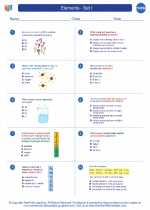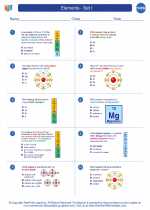Nucleic Acids
Nucleic acids are macromolecules that store and transmit genetic information. There are two main types of nucleic acids: deoxyribonucleic acid (DNA) and ribonucleic acid (RNA).
Structure of Nucleic Acids
Nucleic acids are composed of nucleotides, which are made up of a sugar molecule (ribose in RNA and deoxyribose in DNA), a phosphate group, and a nitrogenous base. The nitrogenous bases in DNA are adenine (A), thymine (T), cytosine (C), and guanine (G), while in RNA, thymine is replaced by uracil (U).
Functions of Nucleic Acids
1. Genetic Information Storage: DNA contains the genetic instructions for the development, functioning, growth, and reproduction of all living organisms.
2. Protein Synthesis: RNA is involved in protein synthesis by carrying the genetic code from the DNA to the ribosomes, where proteins are synthesized.
3. Regulation of Gene Expression: Nucleic acids play a key role in regulating the expression of genes, determining which proteins are produced in a cell at a given time.
Study Guide
- What are the two main types of nucleic acids?
- What are the components of a nucleotide?
- Differentiate between the nitrogenous bases in DNA and RNA.
- Explain the function of nucleic acids in genetic information storage.
- How does RNA participate in protein synthesis?
- Discuss the role of nucleic acids in regulating gene expression.
◂Chemistry Worksheets and Study Guides High School. Elements - Set I

 Worksheet/Answer key
Worksheet/Answer key
 Worksheet/Answer key
Worksheet/Answer key
